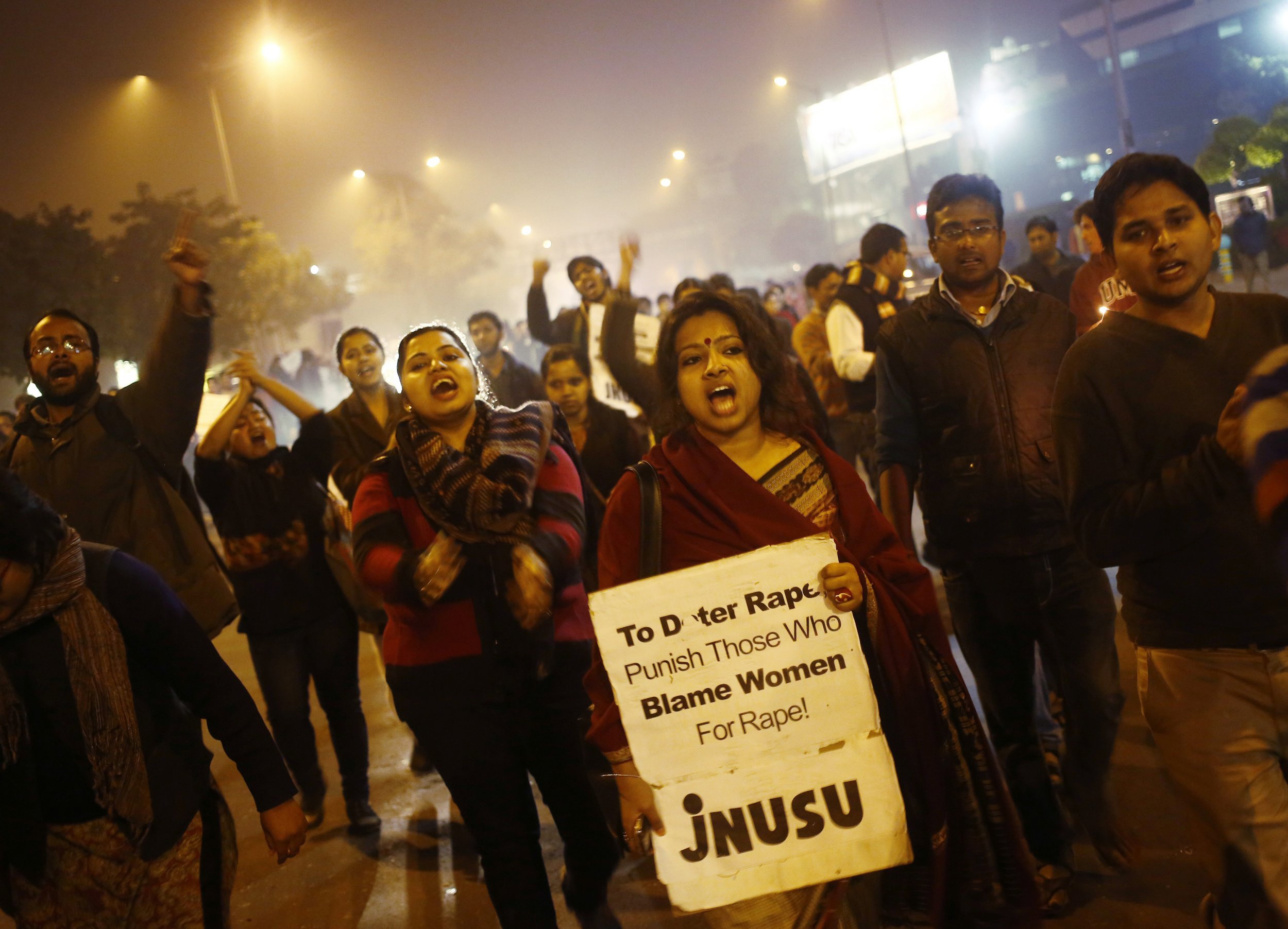
An Indian court issued an order Wednesday to block the local broadcast of India's Daughter, a BBC documentary about the 2012 brutal gang-rape and murder of a 23-year-old woman in Delhi. Similarly, police in Delhi requested an injunction, saying some of the material in the film was "creating an atmosphere of fear and tension."
In response, the BBC announced Wednesday that it would move up the U.K. screening date to the same evening rather than waiting for the scheduled Sunday release—which would have coincided with International Women's Day—"to enable viewers to see this incredibly powerful documentary at the earliest opportunity." Roughly 286,000 viewers tuned in Wednesday night.
India's point of contention is an interview with Mukesh Singh, one of four men convicted of the 2012 crimes and sentenced to death. He is currently appealing his death sentence. Officials also question the circumstances under which he was interviewed in Delhi's Tihar Jail.
"A decent girl won't roam around at nine o'clock at night. A girl is far more responsible for rape than a boy," he said in an interview with India's Daughter director Leslee Udwin, a British actress and producer. "Housework and housekeeping is for girls, not roaming in discos and bars at night doing wrong things, wearing wrong clothes."
"When being raped, she shouldn't fight back. She should just be silent and allow the rape. Then they'd have dropped her off after 'doing her,'" he added.
The statements made by the Mukesh Singh "are highly derogatory and are an affront to the dignity of women," Rajnath Singh, India's minister for home affairs, told India's upper house of parliament. "The respect and dignity of women constitute a core value of our culture and traditions," Singh said.
The minister also claimed the documentary's producers violated the conditions under which they were allowed to film an interview inside the jail, the Los Angeles Times reports, but did not specify what those conditions were. Udwin and the BBC rebutted the claims, saying they had received all the necessary permissions to conduct the interview.
India's government, the minister said, "will not allow any attempts by any individual, group or organization to leverage such unfortunate incidents for commercial benefit."
The filmmaker, activists and other politicians railed against those attempting to block the film.
"The reality is what the man spoke reflects the views of many men in India, and why are we shying away from that?" said Anu Aga, an Indian businesswoman and lawmaker in the upper house of Parliament.
"Suggesting the death penalty, banning this movie—that is not the answer. We have to confront the issue that men in India do not respect women," Aga said. "And any time there is a rape, blame is placed on the woman....Let's be aware of it, and let's not pretend that all is well."
Those aiming to block the film don't want to stop at India's borders. "We can ban the film in India. But this is an international conspiracy to defame India. We will see how the film can be stopped abroad too," parliamentary affairs minister, M Venkaiah Naidu, said Wednesday.
In a statement Wednesday, filmmaker Leslee Udwin appealed to India's Prime Minister Narendra Modi to support the film. She said:
India should be embracing this film—not blocking it with a knee jerk hysteria without even seeing it. This was an opportunity for India to continue to show the world how much has changed since this heinous crime. Sadly … the banning of the film will see India isolated in the eyes of the world. It's a counterproductive move.
Though Naidu hoped to prevent the film's screening abroad as well as in India, the home minister reportedly threatened the BBC after the broadcast saying he would look to see if "norms have been violated."
"We had informed all channels that the documentary must not be released," he said. "But BBC has broadcast it in London. (Now) whatever action we have to take, the home ministry will go ahead and do that."
The BBC had responded to the situation Tuesday by saying that "this harrowing documentary, made with the full support and co-operation of the victim's parents...handles the issue responsibly and we are confident the programme fully complies with our editorial guidelines."
In a studio discussion with the Indian television station NDTV, on which the documentary had been scheduled to air, Udwin said her film "tries to show the disease is not the rapists, the disease is in society."
Uncommon Knowledge
Newsweek is committed to challenging conventional wisdom and finding connections in the search for common ground.
Newsweek is committed to challenging conventional wisdom and finding connections in the search for common ground.
About the writer
Stav is a general assignment staff writer for Newsweek. She received the Newswomen's Club of New York's 2016 Martha Coman Front ... Read more





